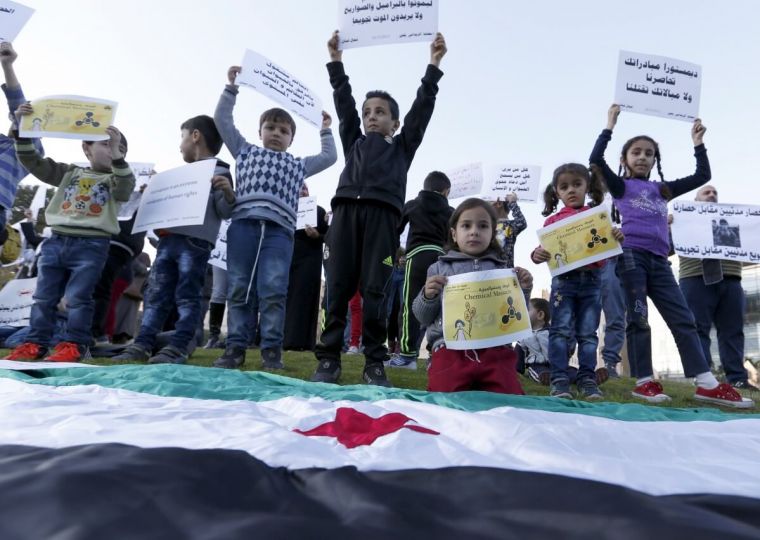Syrian town is starving to death under loyalist siege
Residents of a loyalist-held Syrian town about 30 miles from Damascus are starving to death, according to a Guardian report.

Up to 30,000 people have been held in the town of Madaya since July by forces loyal to President Bashar al-Assad. The residents are starving; so far, only one aid delivery has been allowed into the area, and that was in October.
Families are surviving by killing their pets, stripping leaves off trees and eating petals from flowers. The price of rice has soared on the black market to as much as £170 per kilogram.
"People are dying in slow motion," Louay, a social worker from the town, told the Guardian. "We had some flowers growing in pots at home. Yesterday, we picked the petals and ate them, but they were bitter, awful."
"We used to say nobody could ever die from hunger, but we have seen people actually die of hunger", he added. Louay shared photos of the bodies of several elderly men who were recent casualties to starvation.
"Whether you are a man, woman, child, whether you're 70 or 20 years old, you will have lost about 15kg of your weight," said Ebrahem Abbass, who was formerly a sergeant in the Syrian army but defected. "You don't see a child whose eyes aren't sunken and staring from hunger."
Another activist shared a picture of a boy sat in a pushchair that was far too small for him because he was too weak to walk.
The town is being starved of food, medicine and electricity, forcing children well enough to risk their lives by going to the minefields on the edge of town to collect plants to eat.
Madaya and neigbouring Zabadani – once a stronghold for the opposition – are being held by Assad's forces in retaliation to the suffering of two villages under anti-government forces. Last Spring a coalition of rebel forces called Jaysh al-Fateh captured a large area of north-western Syria from Assad and besieged two Shia areas called Fua and Kefraya.
Foreign forces are seeking to arrange a population swap of the two areas under ceasefire, however only the wounded have been evacuated so far.
An aid official who visited Madaya in October last year described the deep suffering he witnessed at the time, now intensified both by time and the bitter cold that winter has brought.
"Here, we no longer call on anyone," Louay told the Guardian. "We have called for help so many times and nobody has heard us. But we want to ask the officials and decision-makers out there, if you were in this position, and your children were dying from hunger in front of you, what would be your reaction to the world outside that let you down? Don't forget to ask your readers this question."











